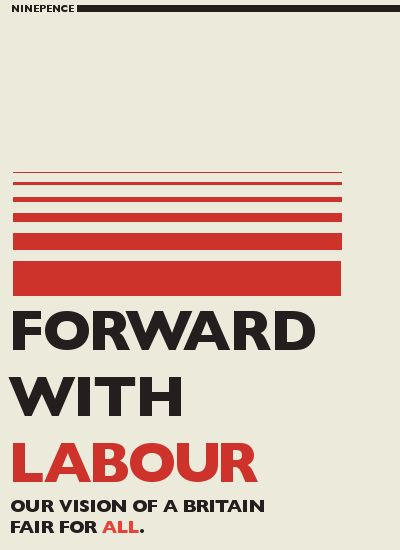Labour '66: A Just Society
Political Position: Left-wing
Ideologies: Democratic Socialism, Liberal Socialism, Social Democracy
Leader: Alistair Monaghan
The Labour Party is the youthful juvenile of the major parties – a remarkable creation that emerged from the declining fortunes of the Liberal Party. It is the political representative of workers, trade unions, the urban classes and the rural poor, as well as a broad movement of left-wing ideological currents. Under the leadership of Alistair Monaghan, the Labour Party is firmly committed to democratic socialism, anchored by commitments to economic and social justice for the working class and, indeed, all Britons. Labour looks upon the upcoming election as an opportunity to bring profound economic and social reform to Britain.
Preamble
It is decision time for Britain. Do we want to continue with the Conservative experiment, which has thrown out common sense, social democratic policies in favour of its selfish faith in the free market? Or do we want a return to a Labour government, acting on behalf of all British people?
At home and abroad, the Conservative government is paralysed by a lack of dynamism. We have seen this domestically both in its disastrous inability to work with the unions and in its confused economic policies, as well as abroad in its decision to buy Britain's way into Europe and its harmful misadventures in Africa. Only Labour has the ideas and the ability to face the challenges of our changing world.
We know that Labour government works. The last Labour government brought Britain into the modern world, both by crafting a humane society at home and by reshaping our role as a global power abroad. Labour believes in Britain as a force for good in the world and as an example to all nations in pursuit of democracy of their own. We reject the negativity of the Conservative government, dangerously inactive both in foreign and domestic spheres.
This manifesto presents the Labour vision of a Britain fair for all. Labour stands not just for the privileged few, but for every British citizen. Confident in our ability to bring meaningful change and government to Britain, we stand on the following platform asking for a mandate.
Economic and Labour Policy
Labour recognizes the need for drastic reform in the way relations are conducted between businesses and their employees, and thus promotes policies to ensure economic prosperity without sacrificing economic justice. Labour does not believe it just to accept a society where those with more wealth and power can use institutional means to lord it over those with less. Thus, Labour believes in an egalitarian and democratic distribution of wealth, as provided for by tax policy, social policy and corporate ownership policy. Labour will strive to further increase the protections working people have available to them as well as increasing their power to utilize those protections in practice.
Labour recognizes the following as intrinsic rights of the working people: regulation of the hours of work, including the establishment of a maximum working day and week; the regulation of the labour supply; the prevention of unemployment; the provision of an adequate living wage; the protection of the worker against sickness, disease and injury arising out of their employment; the protection of children, young persons and women; provision for old age and injury; and recognition of the principle of equal remuneration for work of equal value, as well as the principle of freedom of association, organisation and articulation of grievances.
Labour recognizes the critical importance of the labour movement, as represented in worker's unions, in the fight for economic justice. Under a Labour government, the rights of the worker to organize and negotiate with management shall not be abridged. Labour shall expand the current legal protections written in the Industrial Code of Conduct to grant unions more of a fair say in disputes with managers.
Labour believes that, to redress inherent inequalities in management-labour relations, workers should own a portion of the places where they work. To facilitate this, businesses will be required to compensate their workers in part with shares of the companies in which they work, to both facilitate sharing of profits, more equitable management decisions and increase productivity. Workers with a stake in corporate governance will produce better results, both financially and morally.
Labour shall integrate the conventions of the International Labour Organisation into statutory law, so as to constitutionally enshrine workers’ rights to associate and articulate their concerns, to fair and equal pay, labour inspection and standards, and the abolition of indentured labour and discrimination on the basis of race, creed or sex.
Labour shall work to reinstate the Capital Gains Tax to its former levels under the Bennett and Leighton ministries.
Labour shall invest heavily in infrastructure, public transport and communications.
Labour shall work to reverse the Conservative depletion of social housing by rapidly constructing new complexes of government-funded social housing to help eradicate the specter of homelessness in Britain.
Labour shall increase welfare benefits, including pensions for the elderly and unemployed, to ensure security of livelihood for all.
Social Policy
Labour have always fought against injustices in British society. In government we will work towards creating a fairer, more humane Britain. Great advances were made under Arthur Bennett in abolishing the shameful laws by which homosexuals were persecuted. Labour will continue in this spirit to ensure personal freedom for all.
Labour will first and foremost implement legislation to end racialist, sexist and other discriminatory practices in the workplace, recognising the right of all people to live in Britain in dignity, free from the fear of abuse.
We will work also to ensure that the shameful gap between the payment of men and the payment of women is closed, giving women more freedom and independence to work.
We recognise also the contributions to this country made by its youth, both economically and otherwise, and so will reform the franchise to give all British citizens above the age of 18 the vote. This is part of Labour's wider commitment to reforming the most undemocratic practices that survive in our political system.
To this end, Labour will also streamline government and the civil service to ensure greater efficiency and better government. All members of parliament, employees of the civil service and employees of the government will also be obliged to disclose and register all financial interests so as to bring greater transparency to your government.
Labour will work towards a new deal for the school leaver, recognising that too many of our young people are leaving school at 15 unqualified and unable to work. The minimum school leaving age will be raised to 16 and a review of the education system will be conducted to ensure our children are receiving the highest standard of teaching possible. By the 1970s we hope it will be normal, not exceptional, for all young people to be in some form of education until the age of 18.
To bring learning opportunities to all, Labour will also establish an Open University, bringing top-class courses and teaching to everyone by television, radio and community facilities.
Labour will also take action to implement the findings of the Robbins report and expand the university system so that more people than ever can take advantage of higher education.
We recognise the need to keep our streets safe at a time of rising crime rates and falling police numbers. Far from addressing this urgent problem, the Conservative government has passed piecemeal legislation that makes changes without addressing the core problems of low numbers and poor equipment.
Labour believes there is an urgent need for police reform and will act immediately to stop the drop in numbers of policemen and women patrolling our streets. Then we will review the police force to create a modern and efficient system, with fewer, larger forces around the country using the most scientifically advanced equipment available. We believe that the focus should be on fighting crime, not inefficiency.
More widely, Labour will act to abolish the outrageous use of all forms of corporal and capital punishment that survive in our society. We will also engage in a review of the prison system, especially for juvenile offenders. A Labour government will work tirelessly to bring our judicial system into the modern world.
Labour also recognises the need to support Britain's proud artistic tradition and will increase funding to the Arts Council. We will also abolish the archaic practice of theatre censorship that survives, freeing the stage for the first time. Similarly, following the verdict in R vs Penguin Books Ltd we will implement legislation ensuring that works of artistic merit may be published free from the threat of the censors.
Foreign Policy
Labour remains committed in keeping the United Kingdom as a positive influence in the world. We are committed to a military that is worth its cost. We will work with the United Nations, the European community, NATO, and the United States in preserving international peace. We also remain committed to a strong Commonwealth. Above all, Labour is committed to solving global problems with peaceful solutions.
Labour is committed to a military that is efficient. We will cut unnecessary defense spending. We do this as we understand that the military, unlike when Britain controlled a quarter of the globe, is no longer the most powerful tool the nation has to solve problems. Far more important is our economy, our diplomatic connections and our relationship with the UN and other such organisations working for peace.
Labour remains committed to the United Nations, and to our allies. A stronger United Nations will help solve international issues, and give all nations a voice on the world stage. We will also continue to work with our friends in the United States, and with our other NATO allies in Europe, to ensure global stability and European peace. The world can only be safe as long as the NATO nations work together as equal partners for peace.
Labour is committed to a strong Commonwealth. A strong Commonwealth is vital for international peace as an example of how friendly nations can work together for security and prosperity. Furthermore, a strong Commonwealth allows valuable trade and the freedom of travel that is vital to a growing British economy. Labour will not neglect the Commonwealth as the Conservatives have whilst in power, and will support it in all possible ways.
Above all, Labour is committed to solving global issues peacefully using the diplomatic and economic power of the United Kingdom. This is not a ‘pie in the sky’ dream. Spain was saved from communist tyranny after a successful, peaceful British-led intervention. Labour has proven that it can solve great issues peacefully, and we will continue to do this.





